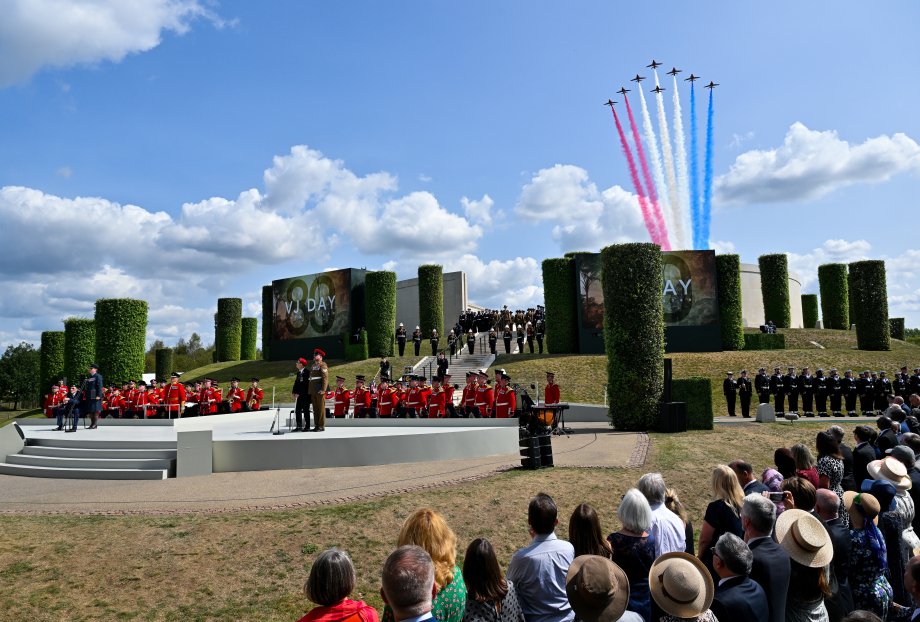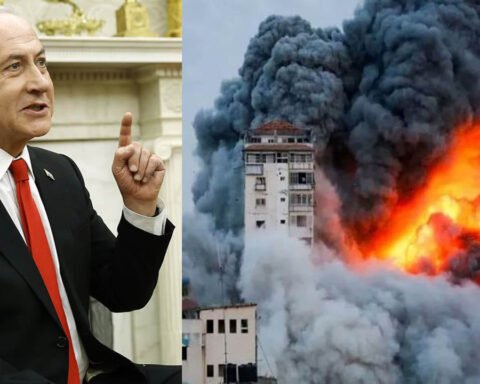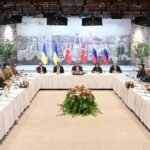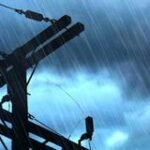Britain has marked the 80th anniversary of Victory over Japan (VJ) Day, a historic moment that ended the Second World War.
The commemoration was held at the National Memorial Arboretum in Staffordshire, bringing together veterans, members of the royal family, and hundreds of well-wishers to honor those who served in the Pacific and Far East campaigns.
The ceremony began with a heartfelt pre-recorded address from King Charles III. In his message, the monarch reminded the nation of the devastating human cost of the war, including the aftermath of the atomic bombings of Hiroshima and Nagasaki (Hiroshima, Nagasaki). “The greatest weapons we possess are not of destruction,” he said, “but the bonds of unity and compassion that tie us together.”
At midday, the country observed a solemn two-minute silence. Soon after, Queen Camilla laid a floral wreath at the Armed Forces Memorial, symbolizing the nation’s enduring gratitude.
One of the most emotional moments came when 105-year-old veteran Yavar Abbas, who fought in the Far East, went off-script to praise King Charles for attending the event despite his ongoing cancer treatment. His words moved both the King and Queen to tears, a moment that deeply resonated with those in attendance.
Also Read; Senegal Debates Asset Disclosure Law Amid Controversy
The event reached its symbolic climax when the Red Arrows, the Royal Air Force aerobatic team, soared overhead, trailing smoke in the colors of the Union Jack. The flypast was not just a spectacle but a stirring tribute to the courage and resilience of those who fought.
Throughout the day, personal stories added depth to the commemoration. Families of veterans laid wreaths at the Burma Railway Memorial (Burma Railway), while a reading by a 104-year-old former prisoner of war reminded all of the sacrifices endured in captivity.
Commemorations stretched beyond Staffordshire. Across the UK, landmarks such as Buckingham Palace, the Tower of London, and the White Cliffs of Dover were illuminated in honor of the fallen. Internationally, in Tokyo, Emperor Naruhito led Japan’s own remembrance, though visits by government ministers to the controversial Yasukuni Shrine once again stirred regional debate.







